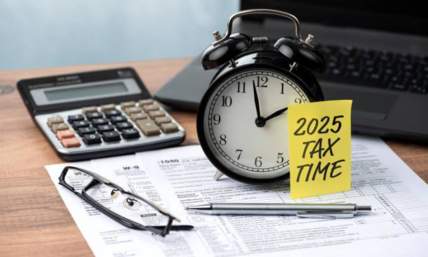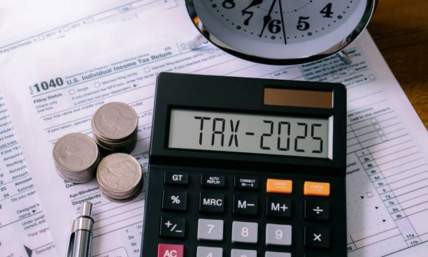Creating Self-Employed Pay Stub
With today’s increasing number of individuals in the self-employed population, they should be able to manage their records. For any self-employed person, there are several important documents you should have. Among all the documents, one of the most significant is the self-employed pay stub. Many times, an independent contractor or a small business person will need pay documentation. Hence, it is a conscious decision to be well-equipped with information on how they are made.
In this article, we’ll cover how to create a self-employed pay stub and more.
What Is a Self-Employed Pay Stub?
Independent contractors do not receive pay stubs from any employers. Concerning the documentation of payment, they are on their own. A self-employed pay stub refers to a document that presents income and deductions for them. It is a significant document that serves as proof that you are capable of paying your bills or debts. It can enhance your business to a great extent if you decide to create them. This document is vital, especially in terms of function and overall performance.
Why Self-Employed Professionals Need Pay Stubs
Pay stubs are not only used to meet documentation requirements. Some of them need to present these if they are in the process of seeking loans. It is also needed if they plan to rent an apartment or are in other financial situations. Landlords require assurance of stability of the income because the flow of money would be the source of rent. Freelancers or independent contractors can use this self-employed pay stub to show this.
In addition, the pay stubs assist in tracking earnings fluctuation and other matters of taxes. This can also assist in reporting taxes for every year.
Essential Components of a Self-Employed Pay Stub
Generally, the self-employed pay stub should have the following details to meet proper needs.
Your business details have to be the first thing. It should include the name of the business, the business address, and identification numbers, if any. This also entails mentioning the pay period and pay date. This assists you in setting a basic mode of issuing the pay stubs.
This is followed by an evaluation of the financial performance. This means the gross of the earnings from carrying out the operations for that period. It should be followed by all the appropriate deductions that should be made. Hence, it is vital that the computation for the take-home amount should be easily identifiable. This implies what will remain after the deductions are made.
How To Generate Self-Employed Pay Stub
Self-employed professionals have several ways to prepare their pay stubs:
-
Pay Stub Generators
Services that provide generators are quite convenient. They simply require the user to input the relevant information. Once they do so accurately, they get a document that is well-formatted. These tools normally facilitate the various calculations. This greatly reduces the possibility of errors.
-
Accounting Software
Pay stubs can be generated using a variety of accounting software. This helps with a seamless integration into a business's general payroll system. It ensures easy and effective management of the records. It also makes it possible to have standard records throughout the business documentation.
-
Templates
A self-employed pay stub can even be created using a provided spreadsheet template. This is for those who wish to be more in control. This will work fine as long as attention is paid to various details. Details such as tax rates and other numbers.
Best Practices for Self-Employed Pay Stub
Here are some best practices to follow with your self-employed pay stub:
Accuracy
Accuracy in calculations is important. Review all numbers, especially those related to tax withholding and deductions. It definitely helps to have a tax expert help out. So, you know the right procedures to calculate in compliance with the current standards. Any special circumstances or deviations should also be recorded.
Record Keeping
Always keep records of your self-employed pay stubs in the right order. Put in place a filing system that enables you to sort pay stubs and retrieve them easily. This may involve physical copies as well as soft copies stored in cloud storage. Making backups is very important. This prevents the loss of crucial financial information.
Review
A business or individual should periodically review their pay documentation. This helps determine the regularity of income and avoid common errors. It can be especially helpful on some occasions. This can be when filing taxes or preparing applications for loans, among others.
Organizing Multiple Sources
Self-employed people often have several clients. This implies that they have multiple sources of income to support themselves. Your pay stub system should reflect this. It should be based on the complexity of your business and the kind of information that you need to present. It is advisable to group different types of income. You can also prepare pay stubs for the major clients individually.
Revenue Tracking
The revenue tracking helps keep track of income. It reports the incomes from different parts of your business. It proves very useful during tax times or when you're preparing statements. Some independent contractors also prepare summary records. This joins the information of several pay stubs.
Building Credibility
Clean and organized pay stubs can substantially improve your appeal to financial institutions. Often, you need to show evidence that you earn if you are self-employed. You should be ready to describe your wage pattern. Also, you may need to prove the way you have been making your pay stubs.
Most current lenders and other financial institutions are more aware of self-employed persons, at least to some extent. They understand how they submit their income documents. However, professional pay stubs will enhance the appearance of your application. Another recommendation is that you should attach brief descriptions or comments on some things. These are trends or fluctuations that may be observed in the income.
Technology Solutions
Thanks to the advances in technology, there are quite a number of solutions for handling self-employed pay stub. Pay stubs can be created and saved using cloud-based accounting systems. These sometimes work hand in hand with other account-related solutions. Mobile apps enable you to generate and access pay stubs from any location. For example, this helps freelance workers who need to travel to different locations.
Common Mistakes To Avoid
Creating a self-employed pay stub can be a challenging process. There are some common mistakes you should look out for:
Lack of Proper Format
Ensure that all the pay stubs produced are formatted consistently. This helps you conform to the set standard. It also makes your work easier during the review process.
Mathematical Calculations
Pay close attention to all mathematical calculations, especially since they may contain complex tax rates or multiple sources of income. Ensure that everything is accurate.
Improper Identification Data
Make sure that there are no blanks in each pay stub. All key information and figures should be well documented.
Originality
Write pay stubs for your business or operations uniformly. That is, do not write pay stubs only when they are needed for financial purposes. Thus, it can be in membership of an association or taking out a loan.
Record Retention and Security
There are some guidelines regarding the number of years that the pay stubs should be kept. That includes other supporting documents and records. It is desirable to keep the tax records for at least three years. This follows the records retention recommendations of the IRS. It also helps to enhance effectiveness in business management. Consider:
-
Digital Storage: Implement secure backup systems for electronic pay stubs.
-
Paper files: Keep files, especially important ones, in an orderly manner to prevent loss.
-
Access Control: Guarantee that only authorized personnel will have access to financial data. Ensure that the data is still available whenever required.
Wrap Up
Pay stub management is an area of importance in entrepreneurship or self-employment. You need a self-employed pay stub for many reasons, whether you're a freelancer contractor or a small business. Proper pay documentation reflects the business’s stability and propensity for growth. You need the right systems in place regarding pay stubs. So, you will be ready to face any financial or administrative demands of self-employment.
Nowadays, managing your self-employment income has never been easier. With our pay stub maker, you can effortlessly generate professional pay stubs tailored to your needs. Ensure your financial records are accurate and up-to-date, whether you're a freelancer, contractor, or small business owner. Visit us today to simplify your pay stub creation process.














